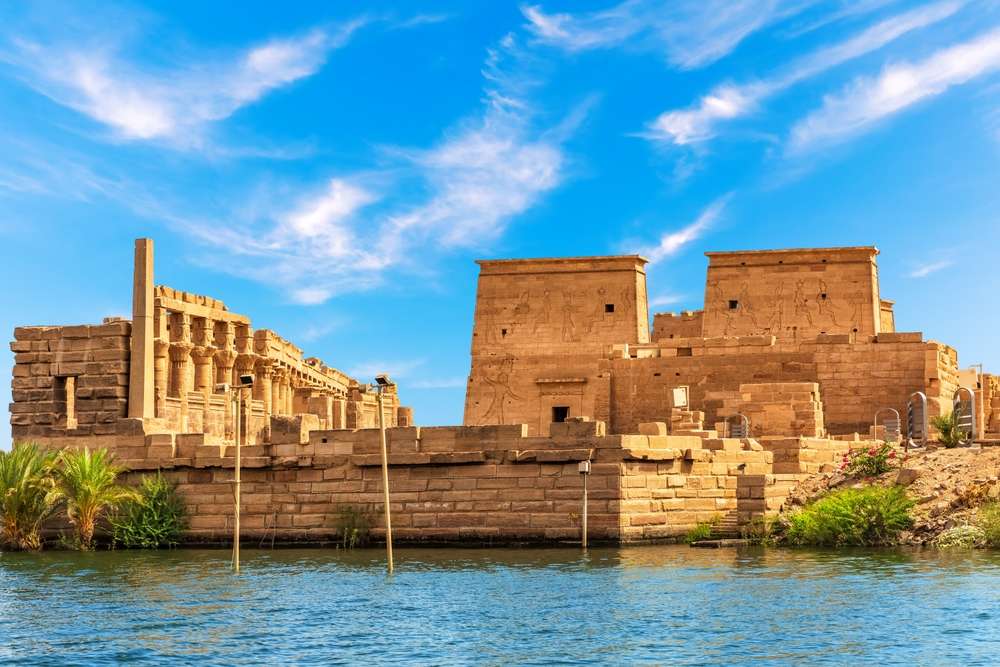Egypt is a place of stories where the whispers of spiritual dedication and the echoes of past civilizations create a rich tapestry of religious legacy. Egypt, sometimes regarded as the origin of many of humanity’s first ideas, provides a trip through the hallowed sites of three main religious traditions: Islam, Christianity, and ancient Egyptian spirituality. Every building, from the majestic temples rising from the sands to the tall minarets of mosques and the calm beauty of churches, speaks a tale of faith, culture, and history.
The Splendor of Egypt’s Mosques
Egypt’s identity has been anchored in Islam since the 7th century. Not only places of prayer but also mosques dotting the Egyptian city skyline are architectural wonders reflecting centuries of Islamic art and culture.
The Mosque of Muhammad Ali is among the most famous structures in the Citadel of Cairo. This Ottoman-style mosque takes the front stage in the city skyline with its rising domes and thin minarets. Inside, guests are met by elaborate chandeliers, detailed carvings, and a grandeur that speaks to the spiritual commitment of its designers.
Founded in the tenth century, Al-Azhar Mosque is another prominent mosque. It is the core of Islamic knowledge and a spot for prayer. One of the first universities in the world, Al-Azhar University, keeps drawing students from all over to uphold Egypt’s standing as a hub of religious knowledge.
These mosques are living monuments to Egypt’s cultural and religious life. The call to prayer reverberates through busy streets, asking visitors and worshippers to halt and consider. They are more than just buildings.
Egypt Visa For POLISH CITIZENS
The Quiet Grace of Egypt’s Churches
Christianity first emerged in Egypt in the first century, when Saint Mark, according to legend, brought the Gospel to Alexandria. Over time, Egypt became a pillar of early Christianity, and the Coptic Orthodox Church developed as a unique and ongoing legacy.
With their distinctive mix of Byzantine and Egyptian elements, Coptic churches provide a window into the early years of Christian worship. Among the most well-known is the Old Cairo hanging church. Rising atop a Roman fortification gate, this Coptic architectural marvel features a calm interior design and detailed woodwork carvings. Guests may sense the weight of millennia of loyalty and resiliency by strolling through its hallways.
Another important location in the Eastern Desert is the Monastery of Saint Anthony. Thought of as the oldest Christian monastery in the world, it is evidence of the monastic customs starting in Egypt. Its far-off position, surrounded by rocky mountains, provides a clear but serene environment for meditation and spiritual connection.
Egypt’s churches are alive environments where faith is still growing. They give guests an opportunity to interact with the country’s spiritual pulse, not only historical sites.
The Eternal Majesty of Temples
Without a trip into Egypt’s history, no study of her religious legacy would be complete. Among the most recognizable emblems of ancient Egypt’s spiritual legacy are its temples, with their massive sculptures, hieroglyphic inscriptions, and continuing sense of mystery.
One particularly excellent example is the Temple of Karnak in Luxor. Covering more than 200 acres, this spreading structure was devoted to the Theban trinity of gods: Amun, Mut, and Khonsu. As one walks across the Great Hypostyle Hall, with its forest of soaring columns, one can only wonder at the talent and ambition of the ancient builders who aspired to honour their gods on such a grand scale.
Not less amazing is the Temple of Abu Simbel, fashioned on a mountainside near the Nile banks. Constructed by Pharaoh Ramses II, this temple honours the king’s divine sovereignty and the might of the gods. The enormous Ramses sculptures at the entryway, staring out over the desert, inspire wonder that cuts across generations.
These temples are windows into the worldview of an ancient culture that aimed to coincide with the universe and the divine. They are not only artifacts from the past; they still today evoke awe and respect.
Egypt Visa For PORTUGUESE CITIZENS
A Harmonious Tapestry of Faith
The coexistence and preservation of these customs define Egypt’s religious legacy as exceptional. Mosques, churches, and temples often stand side by side, reflecting the layers of history that have moulded the country. This harmonic mix of many religions is evidence of Egypt’s function as a crossroads of civilizations and a lighthouse of spiritual variety.
Travelers visiting these holy sites are invited to interact with the great human search for meaning and transcendence, not only to tour past events. Egypt presents an experience that hits the soul and stays in the heart, whether your attraction is the call to prayer, the peaceful songs of a Coptic church, or the silent majesty of ancient ruins.
Also read: The Best National Parks in Egypt for Nature and Adventure Lovers



